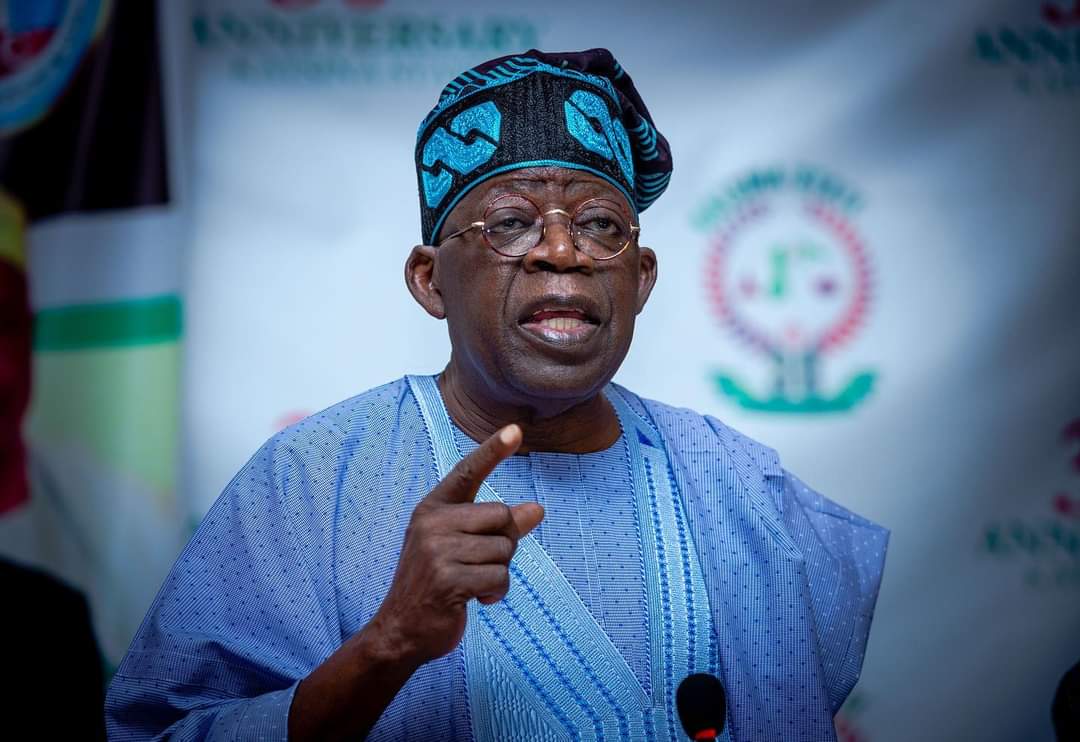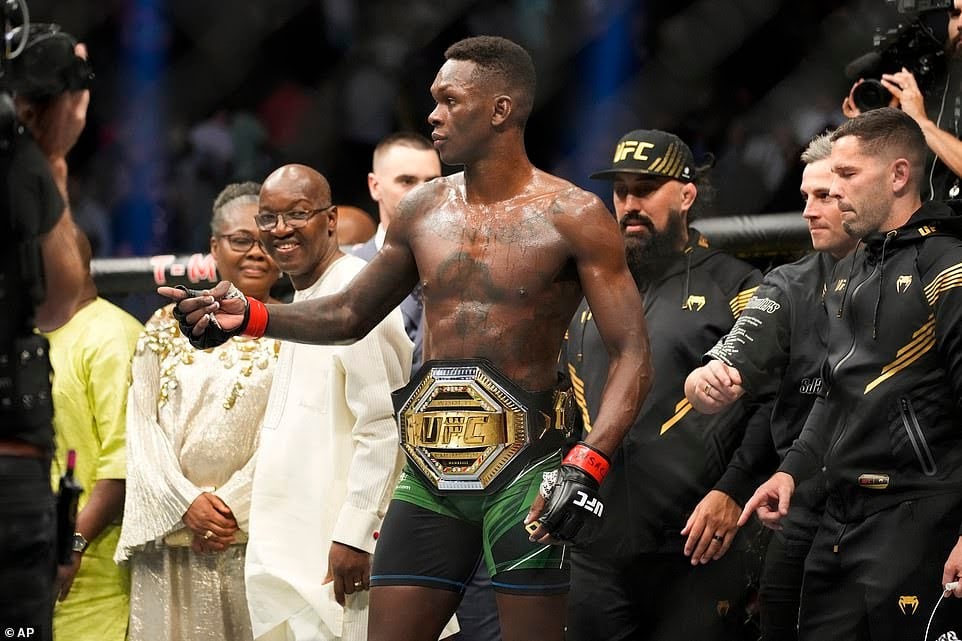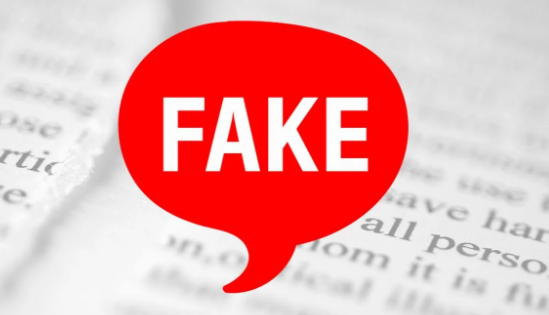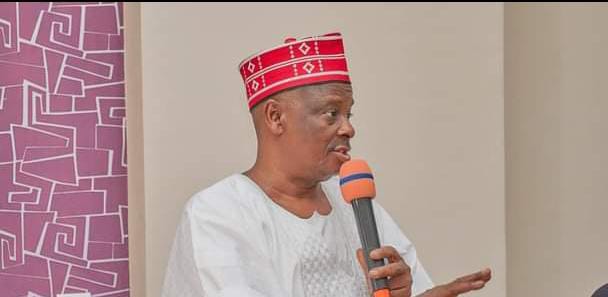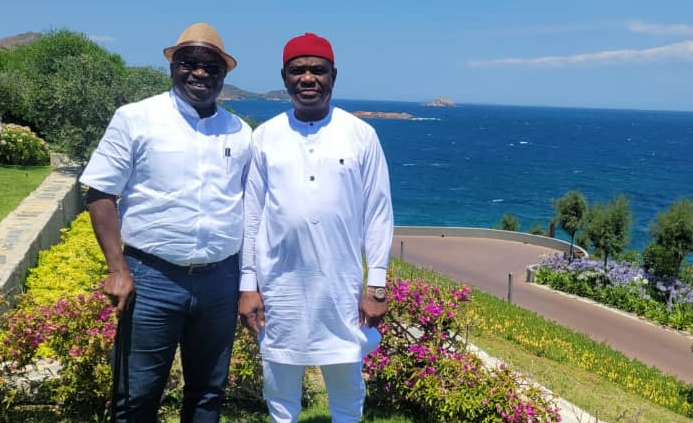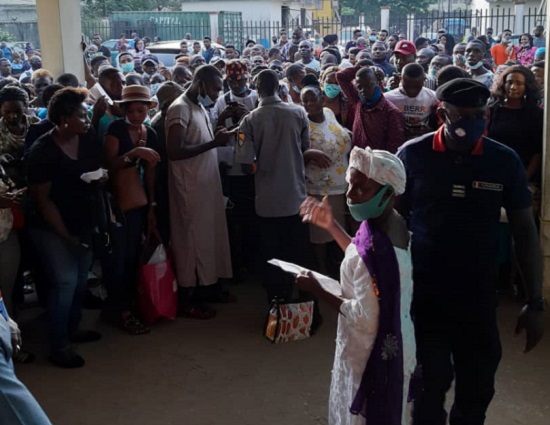The social media, where most political debates take place these days and where brickbats are exchanged between protagonists and antagonists per nanosecond, has caught fire again with reports that Asiwaju Bola Ahmed Tinubu, the presidential candidate of the All Progressives Congress (APC), told the Independent National Electoral Commission (INEC) that he did not attend a primary or secondary school. I found it curious that Tinubu would make such a claim. The law stipulates that a candidate must be educated “up to at least School Certificate level or its equivalent”, so how can Tinubu claim he did not go to school? Would he not be setting himself up for a political battering?
Upon closer attention, I realised that what Tinubu actually did was to leave the spaces for primary and secondary schools attended blank — not that he said he didn’t attend at all. For his education, he listed only the Chicago State University where he earned a BSc in Business Administration (Accounting) in 1979. If you are familiar with Tinubu’s history, you would find the omissions curious. He had run into a devastating storm in 1999 over claims in his INEC filing that he attended St John’s primary school and Government College Ibadan, as well as Richard Daley College and University of Chicago, both in the US. Senator Tokunbo Afikuyomi, as I recall, claimed responsibility for the forms.
The controversy had landed in the Lagos house of assembly, which accepted his defence that the form was filled by a third party, exonerated him of forgery since he did not present any certificates for these schools, and cleared him of any wrongdoing as had a confirmed BSc from Chicago State University. The Supreme Court, in a lawsuit instituted by the legendary lawyer and activist, Chief Gani Fawehinmi, made the landmark pronouncement that Tinubu could be investigated by the police for alleged perjury but could not be prosecuted because he had constitutional immunity as a sitting governor. An uneasy calm ensued thereafter but he managed to survive the blitzkrieg.
Tried as Tinubu did, the allegations kept resurfacing. And contrary to a trending accusation, the media did not sweep it under the carpet. For instance, in 2002, when I was editor of TheWeek, a weekly newsmagazine, we produced an edition revisiting the allegations, insisting that many questions remained unanswered. But on the instructions of my employers, the magazine was not circulated — even though it had been printed. By the way, TheWeek was owned by Alhaji Atiku Abubakar, then vice-president. He and Tinubu were tight friends and political associates, despite being in different parties. It was not like I didn’t know this fact but I felt I was doing God’s work.
Advertisement
After the experience, I knew my staying on as editor was no longer tenable, especially as I had granted a newspaper interview criticising my employers. On reading the interview, my mentor felt I had crossed the line and suggested it was time to quit. I, painfully, fell on my sword. I was not bitter, just disappointed. I was an idealistic young man who had read of how American politicians resign over moral and legal issues. I desired that political culture for Nigeria. The irony of it all, I should say, was that I had nothing against Tinubu as a person — in fact, I liked the way he had started transforming Lagos with public works and reforms in traffic management and waste collection.
Now, with his 2023 presidential run, there is a resurgence of these allegations. I am not surprised. In truth, these allegations never really went away — they were just kept in the cooler. Activists have asked the inspector general of police to arrest and prosecute him for allegedly falsifying his academic qualifications in 1999. They accused him of giving false information under oath — also known as “perjury”. Mr Bayo Onanuga, media director of Asiwaju Bola Tinubu Campaign Organisation, replied instantly, declaring the allegation as false, insisting that Tinubu never submitted bogus certificates in 1999 and that the state lawmakers had probed and exonerated him.
Scrutinising presidential candidates is not strange. Bloomberg recently revisited the historical corruption allegations against Tinubu and Atiku. It made references to the bullion vans that showed up at Tinubu’s home on the eve of the 2019 elections, Alpha Beta’s controversial revenue systems management contract with the Lagos government, a reported investigation of the former governor by an anti-graft agency and a 1993 civil forfeiture case in the US. Although these allegations have been in the media for two decades, there are no convictions yet. Tinubu has been charged only once — before the Code of Conduct Tribunal (CCT) in 2011 — and he was discharged and acquitted.
Advertisement
On Atiku, Bloomberg dug up a US Congress report that said he brought “tens of millions” to the US when he was vice-president. It also referred to the case of William Jefferson, a US congressman from Louisiana who was caught in an FBI sting operation in which he demanded a $500,000 bribe from two US telecom firms. Prosecutors said it was a bribe to facilitate the award of contracts by the Nigerian government. Atiku denied allegations that the cash was meant to be passed to him. He never went on trial but he was denied US visa from 2007 to 2019. Jefferson was jailed for seven years and released after five years. The court dismissed a charge that the cash was meant for Atiku.
Tinubu and Atiku are not the only ones under media scrutiny. Mr Peter Obi, the presidential candidate of the Labour Party (LP), was also accused of hiding his assets abroad and failing to declare them in his Code of Conduct Bureau (CCB) filings — potentially a criminal offence. According to Premium Times, Obi, as governor of Anambra state in 2010, set up a secret company in the British Virgin Island and named it Gabriella Investments Limited, after his daughter. Obi defended himself, saying it was to avoid “excessive taxes” and that he did not know he needed to disclose it to the CCB. The N250 million found in official vehicles at Obi’s private office in 2009 is also back in the news.
Alhaji Musa Rabiu Kwankwaso, the presidential candidate of the United Nigeria Peoples Party (UNPP), must thank his stars that no damning questions are being raised about his qualifications and public service so far — at least not in the traditional or social media. He was governor of Kano state between 1999 and 2003. His successor, Mallam Ibrahim Shekarau, set up an administrative panel to probe his tenure as governor in what many described as a political move ahead of the 2007 elections. The panel indicted Kwankwaso on the Tamburawa water treatment project but it was never accepted by a court. Kwankwaso returned as governor after Shekarau had served two terms.
Since Tinubu is the one currently under the searchlight, what next? There are two basic options: the legal and the political. The legal route requires getting a criminal conviction for alleged forgery and perjury. If convicted, Tinubu may no longer be the APC candidate, unless he gets a presidential pardon (as President Olusegun Obasanjo did in the case of Salisu Buhari, the former speaker who resigned over a certificate scandal). If Tinubu is disqualified based on a conviction for the alleged perjury in his 1999 filing, APC may not be able to field a presidential candidate as substitution is allowed only for withdrawals and deaths, not fresh criminal convictions after the primaries.
Advertisement
Proving that Tinubu forged certificates will be a hard job since he did not submit any that can be used as evidence, but a court of law will have to determine that. Focus can be on alleged perjury: whether or not he lied under oath in 1999. But there could be issues of locus standi. I think only the police and INEC can initiate a trial and I do not think either would be willing to get involved in what will now take on the colour of politics, even regional politics. More so, litigation could go on for years, followed by appeals and other legal hurdles. Theoretically, though, Tinubu’s accusers could use the legal route to get him disqualified if they can prove either forgery or perjury before a court.
Alternatively, an aspirant who lost in the APC presidential primaries can head to court to argue that Tinubu does not meet the constitutional requirements. But proving Tinubu does not meet the requirements will be an issue here. The constitution says the candidate must be educated “up to at least School Certificate level or its equivalent” and he has a verified BSc. Being a former governor is itself considered an “equivalent” by the constitution. Meanwhile, the litigant cannot rely on the 1999 filing: the 2022 Electoral Act limits the grounds to fresh filings with INEC after the primaries.
The other option is political: embarrassing and demarketing Tinubu during electioneering and hoping that it will stick. This will be a moral, rather than a legal, route but it has the capacity of doing some damage. Tinubu’s opponents can roll out a massive campaign questioning his credentials and asking Nigerians not to vote for him. Demarketing him will not carry the force of a legal conviction, which could be final and fatal to his candidacy, but it may resonate with those who have not made up their minds on who to vote for and those who care much about the issues around his credentials that are being raised. Some will argue though that both the legal and political routes should be explored.
In all, Tinubu must be prepared to answer questions around the omissions as I expect that to be a campaign issue. We should actually consider it a big plus for our democracy that we are asking questions about the pedigrees of those who want to superintend over the affairs of the nation. In fact, anybody who wants to hold public office should be fully prepared to face uneasy questions. The thriving democracies did not get to where they are today by mistake. Accountability and transparency are central to democracy and the moment you offer yourself for public service, you should be ready for the searing spotlight. Indeed, all the candidates must prepare for public scrutiny.
Advertisement
AND FOUR OTHER THINGS…
SHIRORO SORROW
When terrorists attacked a church in Owo, Ondo state, and massacred scores of worshippers, I was so devastated and jittery. The south-west has been enjoying peace and stability for a while and this has helped its economy. But while I was mourning and moaning, it suddenly crossed my mind that massacres happen in the north almost every week. The Owo thing only brought it home: so, this is what has become normal in northern Nigeria? On Wednesday, terrorists attacked a mining site in Ajata-Abok, Shiroro LGA, Niger state, and massacred 20 soldiers and seven policemen who were responding to a distress call. God, whatever the solution is, we must find it. Overwhelming.
Advertisement
ZAMFARA WARFARE
Against every known law in Nigeria, the government of Zamfara state has asked its residents to take up arms against bandits who have been terrorising them for over 10 years with no respite in sight. A government official was quoted as asking residents to lynch anyone identified as a bandit in what is essentially a licence to kill whoever you don’t like by treating suspicion as conviction. But can you blame the state government? Since the Nigerian state has not been able to secure its territory and protect its citizens from these mindless killings, frustration will push people to reply anarchy with anarchy. However, it seems Zamfara’s motive is to indirectly indict the federal government. Snide.
Advertisement
PUMMELLING POJU
My sympathies to Pastor Poju Oyemade, the founder of The Covenant Nation and host of The Platform, who came under Twitter attack from the Peter Obi mobsters on Thursday. His offence? He tweeted about the link between faith and works and the place for planning and preparation. He had to hurriedly delete the tweets. Ironically, it was at The Platform years ago that Obi told the “I have only one wristwatch” story that endeared him to many Nigerians. It now seems the core strategy of Obi’s latter-day fanatics is to insult as many people as possible and acquire as many as enemies as they can, including the Christian leaders that they are banking on for votes in the presidential poll. Suicidal.
Advertisement
FREUDIAN SLIP?
The resignation of Justice Tanko Muhammad as CJN appears to have pushed a worrisome development to the background: a letter written by Wole Olanipekun Chambers to SAIPEM soliciting to take over a brief being handled by Odein Ajumogobia’s law firm. The Olanipekun advantage, according to the viral letter, is ability to influence judges because Chief Wole Olanipekun is, among other things, the chairman of the Body of Benchers. The senior lawyer quickly dissociated the firm from the letter. The partner who signed the letter has claimed responsibility, claiming she was acting alone based on “exuberance” and that it did not pass through the usual in-house vetting. Stories.
Add a comment

